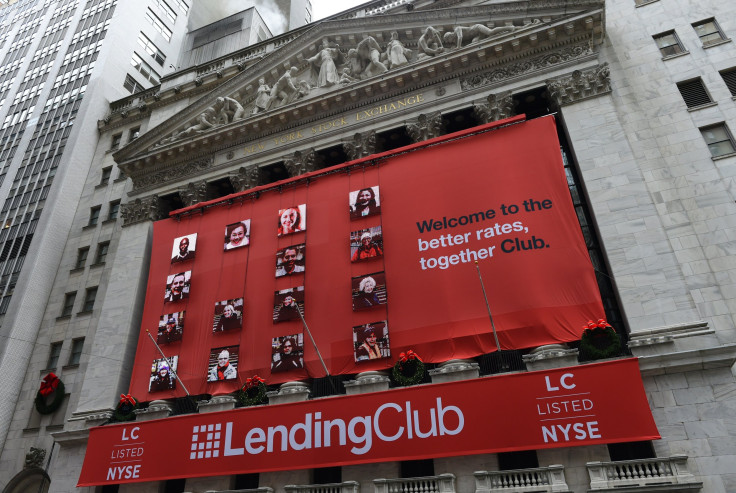At Online Lender Upstart, Academic Achievement Helps Millennials Land Loans

Requesting a loan from Upstart is a lot like applying for a job at Google Inc. Both companies scour your academic credentials -- GPA, alma mater and field of study -- and run them through an algorithm that predicts your employability. Google uses the model to pluck the best hires from a vast pool of candidates. At Upstart, a new and somewhat controversial kind of financial institution founded by three ex-Googlers, the data helps determine who is most likely to honor their debts.
The California lending company launched three years ago to solve what its founders saw as a growing problem: People in their 20s and 30s have trouble securing affordable loans, largely because they lack the extensive credit histories that older generations have built up over time. By factoring academic success alongside traditional measures such as credit scores, Upstart believes it can identify low-risk millennial borrowers who are often passed up by traditional banks or are forced to pay sky-high interest rates.
“The whole notion of how personal credit evolved is ‘guilty until proven innocent,’ ” said Dave Girouard, 49, a former president of Google’s Enterprise division who co-founded Upstart with Anna Counselman, 35, and Paul Gu, 24.
“Upstart came to the idea that we could, through some really interesting data science, help people access credit on more favorable terms, and that would be fundamentally a good thing,” Girouard said.
The Palo Alto-based company offers three-year personal loans ranging from $3,000 to $35,000, with average annual interest rates of about 11 percent. Roughly two-thirds of its borrowers are using the loans to pay off credit card debt, which can carry interest rates nearly double those of Upstart’s. Other borrowers use loans to pay for coding boot camp courses, to relocate for a new job or to purchase a sparkling engagement ring.
“Upstart is responding to a consumer need. That’s what this audience is most interested in: short-term, small loans,” said Mike Sullivan, a consultant for Take Charge America, a nonprofit credit counseling agency in Phoenix. “From a marketing perspective, I think it’s very clever.”
Charles Newport, 29, said he learned about Upstart last year from a banner advertisement on Facebook. He and his wife had just racked up around $9,000 on three credit cards to pay for their destination wedding in Playa del Carmen, Mexico, in August 2014. The newlyweds were paying annual interest rates of up to 24 percent and shelling out about $500 a month to pay off the debt.
“My wife and I financed our wedding ourselves, without having a ton of extra cash in the bank,” said Newport, who works in software sales for a tech startup in Chicago.
Newport researched Upstart, then decided to apply online for a three-year loan. The lender offered interest rates at 8 percent, enabling the couple to lower their monthly payments by about a quarter, to $380. They accepted the loan and immediately paid off their credit cards; Upstart now automatically withdraws payments from their bank account. “We’re saving thousands of dollars over the next few years,” Newport said.
Upstart has awarded $185 million across more than 13,000 loans since April 2014. In June, Upstart raised $35 million in a third round of venture capital investment from Third Point Ventures to expand operations. The funding is on top of the $800 million it already has raised from institutional investors, including Khosla Ventures, First Round Capital and Collaborative Fund.
Upstart is among the handful of online lending platforms to emerge in the wake of the 2008 financial crisis. Facing collapse, banks retreated, making it harder for borrowers to obtain loans or secure attractive interest rates. So Upstart and its larger peers, including Lending Club and Prosper, found a new way to tap the unmet loan demand. Through their digital platforms, the companies match borrowers with investors -- including hedge funds, mutual funds and individuals -- who earn returns on the loans. Upstart makes its money by charging borrowers an origination fee worth 1 to 6 percent the size of the loan.
The niche financial sector is often called "peer-to-peer lending," since investors supply funds almost directly to borrowers. Girouard said he prefers the term “marketplace lending platform,” as all of Upstart’s investors are accredited and most are institutional funds, not individuals. Whatever you call it, the sector is booming. In the U.S., these lenders have doubled the number of loans they originate every year since 2010, with $12 billion created last year, according to Morgan Stanley Research. Within the next decade, the sector could soar to $150 billion in loans, accounting giant PricewaterhouseCoopers recently projected.

Each lending startup claims it has a unique strategy to drive down interest rates for borrowers and lower risks for investors. Upstart’s secret sauce is its academic algorithm, which Girouard said is inspired by Google’s own methods for hiring recent college graduates. “Based on what you studied, where you went to school and how you performed, we’ve built a statistical model that predicts whether you’ll continue to be employed over the term of the loan,” he said. “Going unemployed is one of the principal reasons why people default on loans.”
Girouard insisted the company’s approach doesn’t favor Ivy League graduates with degrees in high-earning fields, including engineering or medicine, while punishing less financially illustrious candidates, such as English majors from public universities. “It’s not at all an elitist thing,” he says, noting that while 95 percent of Upstart’s borrowers have college degrees, only 5 percent went to what he calls a “fancy” school. A healthy FICO credit score -- above 640 -- and steady paycheck are also key deciding factors.
“This is a whole demographic of people that are unfairly treated, in our view, by the credit system,” he said. “We’re using as much data as we can to give the best possible loans to every one of them.”
Charles Newport, the Upstart borrower, said the company’s academic emphasis appealed to him. He attended Indiana University’s Kelley School of Business and holds a well-paying job, but none of that seemed to help lower his credit risk in the eyes of traditional lenders. “You shouldn’t be pushed into a one-size-fits approach. There are different factors that should matter,” he said.
The focus on academic achievement has sparked some concern among consumer advocates. They say they worry any model based on college performance could inherently favor white applicants over other racial groups, since the majority of young degree-holders are white. Among 25- to 29-year-olds with bachelor’s degrees in 2012, 69 percent were white, while 11 percent were Asian, 9 percent were black and 9 percent were Hispanic, Pew Research Center reported last year.
“My position on all these companies is ... they must make sure their credit model does not discriminate against any protected class,” said Ed Mierzwinski, the federal consumer program director at the U.S. Public Interest Research Group in Washington. “I hope they’re not developing models that use proxies for what would otherwise be illegal.”
Girouard said that’s not happening at Upstart. “Using tools provided by the Consumer Financial Protection Bureau, we closely monitor -- and can show -- that our model doesn’t discriminate against any borrower on the basis of race, or any prohibited characteristic,” he wrote in an emailed response. “To us, fair lending isn’t just regulation -- it’s a concept we fundamentally believe in.”
Upstart and other online lenders follow the same federal lending laws as mainstream banks, which require disclosure of loan terms and nondiscrimination. Alternative lenders, however, aren’t subject to all the same regulations that govern bank operations, and the speed at which online lending has surged is giving regulators pause.
In June, the U.S. Treasury Department announced it was opening a study of online marketplace lending to boost the public’s understanding of how such firms operate, and to determine “how the financial regulatory framework should evolve to support the safe growth of this industry,” according to Treasury’s request for information.
While Upstart’s loans give borrowers a short-term boost, Girouard said the company’s ultimate aim is to help younger people improve their financial standing over the long haul. Racking up high-interest credit card debt, for instance, can hurt a borrower’s ability to secure favorable rates for mortgages or car payments in the future. Paying a lower-interest installment loan, by contrast, can in some cases improve a credit score. By helping millennials pay for coding boot camps or move for a new job, Upstart also is enabling borrowers to take steps to accelerate their careers, he said.
“We’re helping more people get into a state of financial fitness,” Girouard said. “It doesn’t mean everybody gets to be fabulously wealthy. It just means money and financial matters don’t stop you from living the life you want to live.”
© Copyright IBTimes 2024. All rights reserved.











